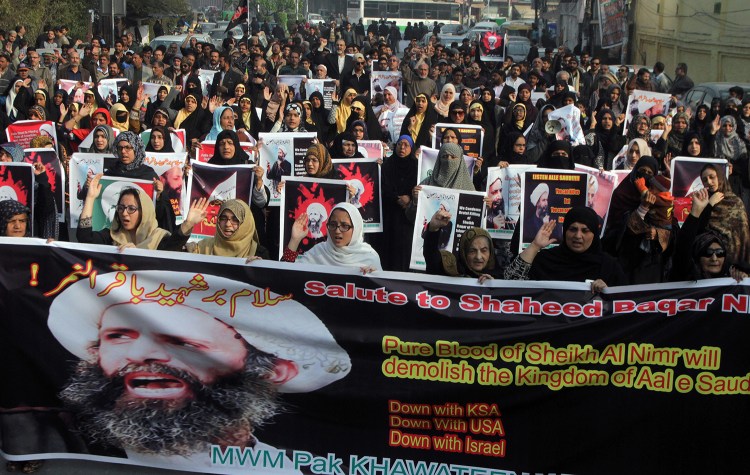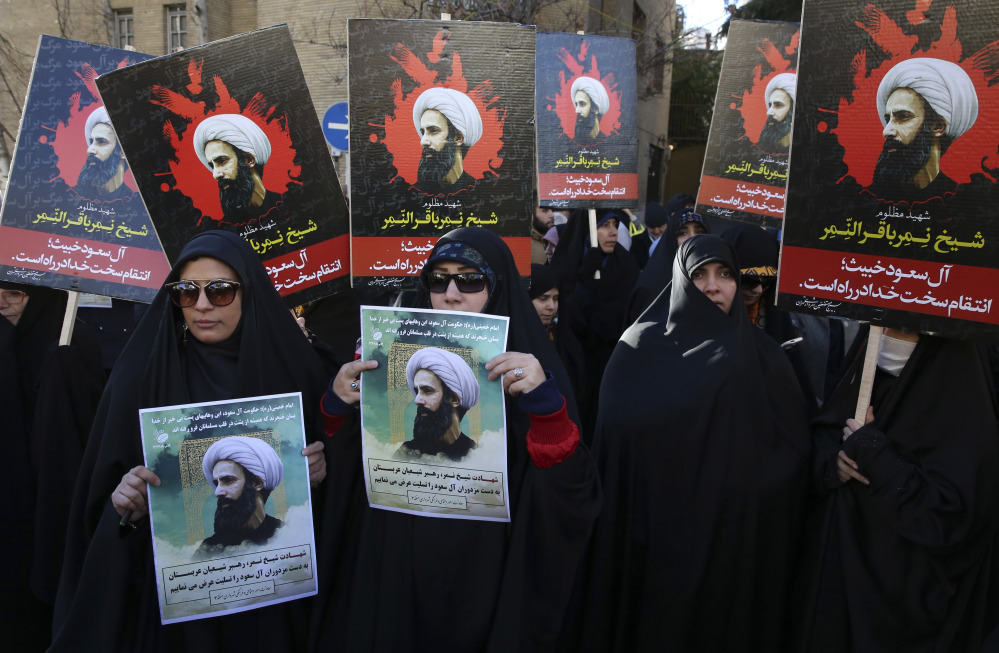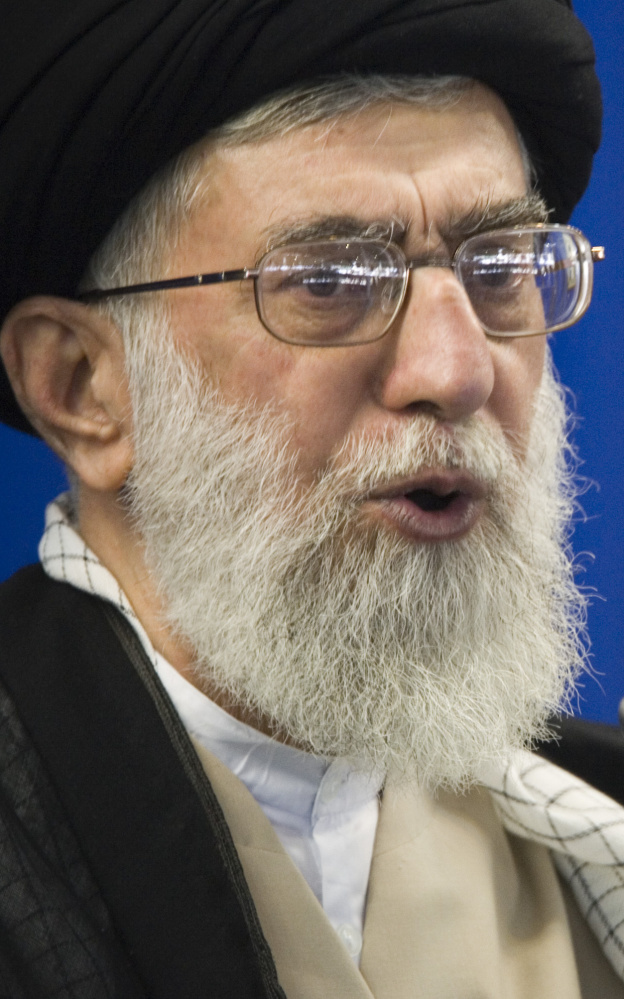BEIRUT — Saudi Arabia severed relations with Iran on Sunday amid the furor that erupted over the execution by the Saudi authorities of a prominent Shiite cleric.
Foreign Minister Adel al-Jubair told reporters in Riyadh that the Iranian ambassador in Tehran had been given 48 hours to leave the country, citing concerns that Tehran’s Shiite government was undermining the security of the Sunni kingdom.
Saudi Arabian diplomats had already departed Iran after angry mobs trashed and burned the Saudi embassy in Tehran overnight Saturday, in response to the execution of Sheikh Nimr Baqr al-Nimr earlier in the day.
Iran’s supreme leader warned on Sunday that there would be divine retribution for Saudi Arabia’s rulers after the execution of a renowned Shiite cleric, sustaining the soaring regional tensions that erupted in the wake of the killing.
The warning came hours after crowds of protesters stormed and torched the Saudi embassy in Tehran to vent their anger at the execution of Nimr, who was among 47 people put to death in the kingdom on Saturday.
In a posting on his website, Ayatollah Ali Khamenei warned that the execution “will cause serious troubles for the politicians of this (Saudi) regime in a very short time. … The hands of divine vengeance will surely snatch – by their necks – those cruel individuals who took his life.”
The execution of Nimr, an outspoken critic of the Saudi royal family, has ignited sectarian tensions across the already inflamed region and jeopardized U.S. diplomacy aimed at tamping down conflicts in the Middle East.
Most of the 47 executed on Saturday were Sunnis accused of participating in al-Qaida attacks. According to Saudi Arabia’s Interior Ministry, some were beheaded and others were shot by firing squad in 12 different locations around the kingdom.
Nimr, however, was one of four Shiites put to death for political activism and the leading figure in the anti-government demonstrations that swept the mostly Shiite east of the country in 2011, inspired by the Arab Spring protests elsewhere in the region.
A photo montage also posted on Khamenei’s website showed a split image of an Islamic State fighter preparing to carry out a beheading and a Saudi executioner. The caption asks the question “Any difference?” The photograph echoed numerous Iranian accusations that Saudi Arabia supports the Islamic State.
In response, Saudi Arabia issued an angry statement pointing out that Iran is often accused by many countries of supporting terrorism.
Iran “is the last regime in the world that could accuse others of supporting terrorism, considering that (Iran) is a state that sponsors terror, and is condemned by the United Nations and many countries,” said a Foreign Ministry statement carried by the official Saudi news agency.
The Saudi statement also pointed out that Iran also is frequently criticized by the international community for carrying out large numbers of executions.
Iran carried out 694 executions in the first half of last year, according to an Amnesty International statement in July. Saudi Arabia, with a population nearly a third smaller than Iran’s, carried out 157 in 2015, according to Amnesty and media reports.
The authorities in Tehran announced that they had made a number of arrests in connection with the rampage at the Saudi embassy in Tehran, and the Foreign Ministry pledged to secure Saudi Arabian diplomatic facilities against further attack.
The Saudi consulate in Mashad, Iran, was also set on fire.
Send questions/comments to the editors.





Success. Please wait for the page to reload. If the page does not reload within 5 seconds, please refresh the page.
Enter your email and password to access comments.
Hi, to comment on stories you must . This profile is in addition to your subscription and website login.
Already have a commenting profile? .
Invalid username/password.
Please check your email to confirm and complete your registration.
Only subscribers are eligible to post comments. Please subscribe or login first for digital access. Here’s why.
Use the form below to reset your password. When you've submitted your account email, we will send an email with a reset code.